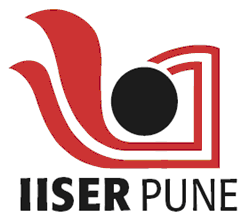
ARNAB MUKHERJEE LAB
Indian Institute of Science education & Research, Pune

Ph. D. positions are available for students motivated to do computational research in chemical and biological physics.
About us
RECENT
2026
-
CurvePotGCN: Vishnu and Prathith's work on graph neural networks to predict protein-protein interactions from surface curvature and electrostatic potential published in the Journal of Chemical Sciences: https://doi.org/10.1007/s12039-025-02459-7
-
Hridya's collaborative work published in PNAS: "A pothole-filling strategy for selective targeting of rCUG-repeats associated with myotonic dystrophy type 1": https://doi.org/10.1073/pnas.2507065123
-
Ashish's work on "Spatially Resolved Single-Water Entropy around Amino Acids and Its Link to Hydropathy" published in JPCB:
https://doi.org/10.1021/acs.jpcb.5c07015
2025
-
Our latest publication in Chemical Science: "Water Entropy at the Threonine-rich Surface of Antifreeze and Ice-nucleating Proteins: Small Changes make Big Difference"
https://doi.org/10.1039/D4SC08383K'
-
Rahul's collaborative work published in Food Bioscience: "LC-MS/MS-based metabolic profiling and in silico molecular modeling revealed a quorum sensing inhibitor from Embelia ribes Burm. f. fruits."
https://doi.org/10.1016/j.fbio.2025.107240
2024
-
Prathith's work on "AlphaMut: A Deep Reinforcement Learning Model to Suggest Helix-Disrupting Mutations. " published in JCTC special issue:
https://doi.org/10.1021/acs.jctc.4c01387
-
Bikirna and Hridya's work on using Memory effects to explain Internal Friction is published in JPCB:
https://doi.org/10.1021/acs.jpcb.4c05394
-
SPOTLIGHT: Sreyas's work on combining Reinforcement Learning with Physics based de novo Drug Design accepted in Digital Discovery.
https://doi.org/10.1039/D3DD00194F






RESEARCH INTERESTS
* Single water entropy
* Protein DNA intercalation
* Origin of internal friction
* DNA Drug Recrossing
* Origin of azeotrope mixture
* Drug Design
* Conformation change in prion protein
* Bending Mechanism of organic crystals
* Curvature of Biological Macro molecules
* DNA conformation using Machine learning
Research Efforts at IISER Pune against COVID-19
Our work on COVID-19
Atomistic de-novo inhibitor generation guided drug repurposing for SARS-CoV-2 spike protein with free energy validation by well-tempered metadynamics





